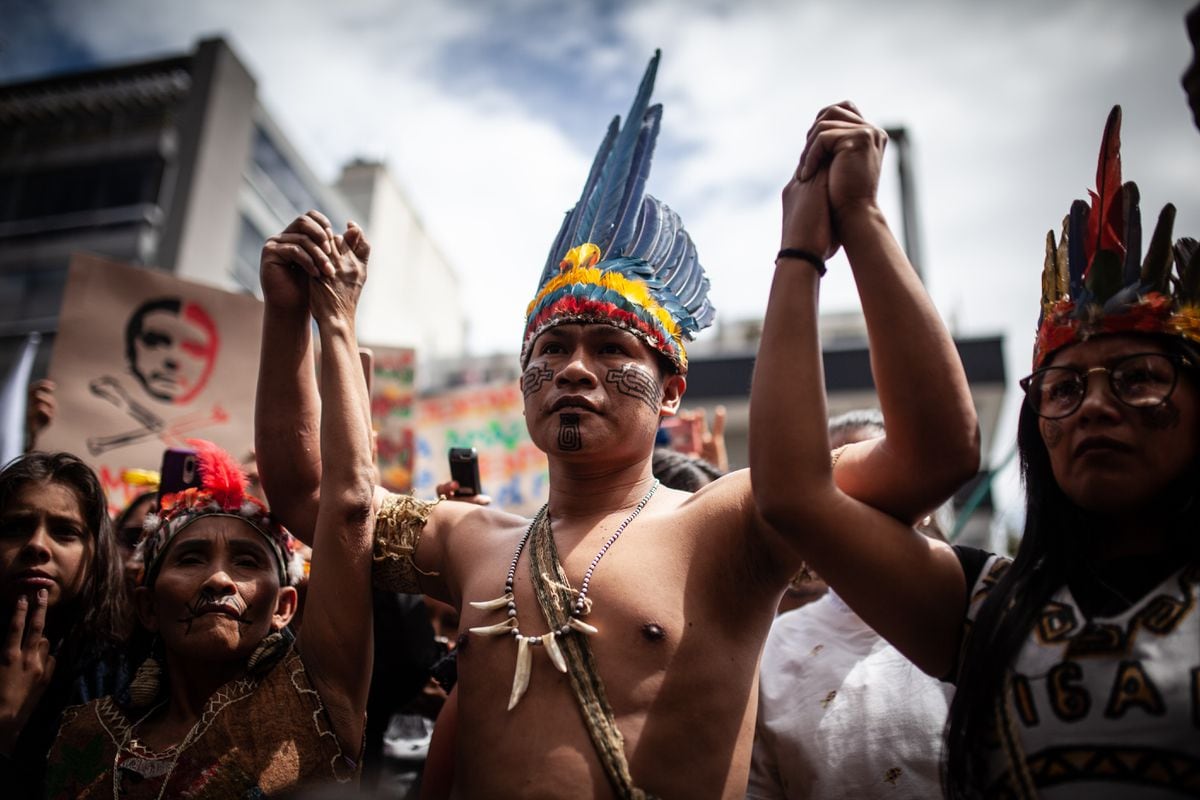EL PAÍS offers the América Futura section openly for its daily and global informative contribution on sustainable development.
If you want to support our journalism, subscribe
here
.
The Colombian Congress approved this Monday the bill that allows the country to ratify the Escazú Agreement, a treaty signed between several Latin American and Caribbean countries that seeks to protect the environment and human rights.
Although the document, signed by 24 countries and ratified by 12 of them, has various nuances, its three main missions are access to information, participation and environmental justice.
In addition, at the center of all this is the objective for which the treaty is best known: to ensure that the countries of the region manage to protect defenders of the environment, an issue that is not minor since, as the last report pointed out of Global Witness, Latin America registers nearly 1,200 environmentalists murdered in a decade.
In 2021, in Colombia that organization documented 33 murders, which made it the second deadliest country for environmental leaders globally.
Despite this, ratifying the Escazú Agreement has not been easy.
During the last government, despite the fact that former President Iván Duque filed the bill to ratify the Agreement on July 20, 2020 with a message of urgency, a figure that should have accelerated the process, the debates were repeatedly hampered by his own caucus, the Democratic Center.
So much so that the time to move forward with the project expired during the past legislation and Duque left the government without ratifying Escazú.
Before his departure, in November 2021, the former Minister of the Environment, Carlos Correa, re-filed the bill, but with two new factors: that the document be socialized with organizations and communities, and in the context of the presidential elections from Colombia.
After overcoming the four debates in Congress and with a new government, that of President Gustavo Petro, this Monday the bill to ratify the Escazú Agreement was finally approved, with only one vote against.
Mauricio Madrigal, director of the Legal Clinic for the Environment and Public Health (MASP) of the Universidad de los Andes, explains that now the law “will undergo constitutional review by the Constitutional Court, which may take six months, to analyze what no provision of our Constitution is violated.
And after that, it goes to the signature of the president and the Agreement would be applied in Colombia.
However, implementing what Escazú says will not be an easy task.
It is not just a matter of ratifying the Agreement before the other international parties, but of deciphering how its implementation will be in Colombia.
The Escazú Agreement was adopted on March 4, 2018 in Costa Rica.
Since then, 24 countries have signed it and on April 22 it entered into force thanks to the fact that 12 countries had ratified it: Antigua and Barbuda, Argentina, Bolivia, Ecuador, Guyana, Mexico, Nicaragua, Panama, Saint Vincent and the Grenadines, Saint Kitts and Nieves, Saint Lucia and Uruguay.
In addition to Colombia, these countries will be joined by Chile, a country that approved the Agreement in Congress in June of this year and that also hosted the first meeting of the Conference of the Parties (COP 1) of the Escazú Agreement in April 2022.

